Parliament Speaker Says Election Date Has Not Been Discussed Yet
ZAGREB, April 16, 2020 - Parliament Speaker Gordan Jandroković said on Wednesday that in the current crisis caused by the coronavirus pandemic the parliament had entirely fulfilled its role, noting that the date of the next parliamentary election had not been discussed yet.
"At this moment, continuing the fight against the coronavirus and citizens' health and lives are our absolute priority. We have not thought about or discussed a date for the elections," Jandroković said in an interview with the HRT public broadcaster. He noted that elections could be held in December at the latest.
Jandroković could not rule out pay cuts for office holders. "We will see what the government will propose with regard to office-holders' salaries, I believe that they will be reduced if necessary," he said.
Jandroković also said that in the current crisis the parliament had successfully defended its status of a representative and legislative body and had completely fulfilled its role.
"We have adopted all important laws that concern the work of state institutions, we have sent a message of support to both the government and citizens to hold on as this is a difficult, unprecedented situation, but it will pass and we must emerge from it stronger," he said.
Jandroković also commented on the remark that the opposition and the ruling majority disagreed as to how measures to fight the coronavirus should be adopted, by an absolute or two-thirds majority, and the fact that he had sought the opinion of the Constitutional Court on the matter.
"The Constitutional Court did not do anything that would indicate that we have violated the Constitution or a law in any way, if the Constitutional Court considered something as unlawful or unconstitutional, it would react," he said.
Jandroković said that the parliament would evidently have to change the way it works because the crisis caused by the coronavirus was not likely to end soon.
The parliament's work should be adjusted to include online sessions or video conferences, he said in a comment on the MOST party's proposal for introducing online communication and electronic voting.
As for the SDP's request that ministers come to the parliament every week to answer MPs' questions, he said that it should be discussed as it would mean that there would no longer be Question Time.
More politics news can be found in the dedicated section.
Fair Compensation for Online Art Must Be Provided
ZAGREB, April 16, 2020 - Culture Minister Nina Obuljen Koržinek has alerted the international cultural and creative industries community of the vulnerable status of freelance artists in the current crisis caused by the coronavirus, saying that new applications will be invited for grants to artists sharing their art online.
The Croatian minister on Wednesday participated in the first in a series of virtual debates organised jointly by the International Confederation of Societies of Authors and Composers (CISAC) and UNESCO with the aim of bringing artists and governments together to discuss ways of facing the consequences of the coronavirus crisis in the cultural and creative sectors.
"We have raised some issues concerning the vulnerability of artists' status, the need for copyright protection, as well as... possible alternative ways to distribute and take part in culture while the restrictive measures are in force, but also how we will return to making art and participating in it after the measures are relaxed," she said after the discussion.
Obuljen Koržinek said that none of the stakeholders in the culture sector were ready for the current crisis but noted that there was a big difference between countries that have developed culture policies and those that have no support systems for artists and culture. She noted that even countries with a long tradition of developed culture policies, like Croatia, recognised numerous weaknesses in their culture systems.
The minister especially referred to the vulnerability of freelance artists, stating that the most difficult problem at the moment was finding a way to help them.
All cultural events with large audiences will probably be restricted for quite a while, and all activities which were encouraged up to now, such as mobility, co-production, or artist exchanges, are impossible at the moment, and it is uncertain when the situation will normalise, she said.
Therefore, she underlined the great responsibility of governments, especially ministers in charge of culture, to adopt measures supporting artists who are unable to do their job due to the new circumstances.
Obuljen Koržinek also raised the question of the importance of improving the copyright system, especially at a time when public gatherings are banned and authors are sharing their work and cultural content free of charge.
The minister thanked all artists who share their artwork for free thus helping citizens to deal with the current situation better, and supported those who advocate for a fair compensation to all artists, authors and performers, in the digital environment.
The Croatian Culture Ministry is working on a new, ad hoc invitation for applications for support to provide at least some kind of compensation to those who share their cultural content online, the minister said.
This is the first time such a model is being made and additional time will be necessary to implement it, the minister said, adding that they needed to be certain that the measure will really help those who need it the most.
More culture news can be found in the Lifestyle section.
Coronavirus Crisis Affects Business Results of Airports in March
ZAGREB, April 16, 2020 - The adverse effect of the coronavirus epidemic cut by half the number of passengers handled by airports in Croatia in March, in comparison to their business results in March 2019.
Although March usually ushers in the tourist season and brings about higher number of passengers for airports, this March the Croatian airports fared worse than in February.
For instance, the number of passengers handled by Zagreb Airport last month fell by 58% compared to the statistics for March 2019.
The number of flights via this airport was reduced by 1,000 to 2,310 this March, and the cargo handled by this airport was reduced by 130 tonnes to 829 tonnes on the year, according to the figures published on the airport's website.
Split's airport saw a decline of 67% in the number of passengers to 16,500.
The airport in the coastal city of Zadar experienced a decline of 51% in the number of passengers this March compared to March 2019.
The airport of Rijeka registered a decline of 87%.
The airport in Dubrovnik was additionally affected by the fact that one of its employees tested positive for COVID-19 which was why the airport was closed in the second half of March.
More coronavirus news can be found in the Lifestyle section.
Croatian Interior Minister Davor Bozinovic on Extending Measures
April 16, 2020 - Croatian Interior Minister Davor Bozinovic spoke to RTL Danas about loosening the stringent measures introduced by the National Civil Protection Headquarters because of the coronavirus pandemic, which expires in three days according to the first plan.
"On Sunday, those first measures expire, and we will probably extend them, because the most important thing is to follow the advice of epidemiologists, and they say that we should have a drop for five to seven days before we begin lifting measures. Of course, we talk about it daily, and we also understand the situation when we talk about the economy, about securing living conditions. We are moving along a narrow margin, above all protecting our health and lives, but we need to think about when and what measures could be discounted," Bozinovic said.
"That Sunday does not mean that on Tuesday or another day, the measures cannot be lifted. It appears that our measures were good, Croatia has an excellent result when looking at the average number of patients. Of course, we are sorry for every person who died, but our health care system is not as burdened as in other countries and we hope it will allow us to think about relaxing measures soon. It should be clear, loosening the measures probably also means increasing the risk when talking about the number of patients," he added.
The first measures lasted 30 days, but new ones are unlikely to be introduced for that period.
"We are thinking of making it shorter, but it can change in five days, not in 15, not in 30. It all depends on the epidemiological situation because it is our priority to save lives," Bozinovic said.
He did not want to say whether there would be some indulgence on Sunday because we still have a few more days until then: "Let's see how we will deal with the fight in the coming days and that will certainly be one of the elements on which we will decide. We cannot talk about dates. At this point, the date would certainly be breaking news, but no one can rationally say that something will be on this day. No one knows."
The government will decide on everything, says Bozinovic.
"The Headquarters is here, it is the government headquarters, and it is the government that controls the whole process. The Headquarters exists as a government body in order for some decisions to be made urgently, an operational body is needed," Bozinovic commented.
Follow TCN's live updates on the coronavirus crisis.
Rent-a-Car Industry in Croatia After Emergency Measures to Save Jobs
April 16, 2020 - The rent-a-car industry in Croatia generates as much as 90 percent of its revenue from tourism, and the entire sector has come to a halt because of the coronavirus crisis.
HRTurizam reports that the annual income of rent-a-car businesses in Croatia is estimated at approximately 150,000,000 euro incl. VAT - most of the foreign exchange paid directly from tourists and agents from abroad.
Rent-a-car coordination HUP, therefore, proposes the adoption of urgent additional support measures for the sector, to ensure the retention of employees and the maintenance of rent-a-car companies until the business normalizes.
The following four emergency measures are required to preserve the rental car industry:
- The leasing moratorium should be agreed for a realistically viable period of 18 months through changes to the moratorium and repayment schedules of all those affected by the crisis
- Suspending airport lease payments during commercial flight suspension and percentage reductions after passenger traffic commence (2019/20)
- Extending vehicle registration from 1 to 3 months when the vehicles are out of operation and extending the period within which a new vehicle must be registered
- Suspending payment of RTV fee
It is of utmost importance in the financial assistance package to present to the Croatian Government the real illiquidity of tourism in the first part of the year and the positive cash flow where the possible surplus (profit) is realized only at the end of summer, so it is important to plan all the delays (credit, leasing and other) with a minimum grace period until September 2021 as the other options are not realistic, points out Mladen Petreski, President of the rent-a-car coordination HUP and adds:
"We welcome the April package of Government measures that have brought major shifts and assistance to the economy. We expect that significant relief in the area of parafiscal levies will be made soon. As vehicles are our primary means of work, all vehicle-related charges need to be dropped in our industry. That is why we hope that the proposal to postpone the obligation to register new vehicles and to extend the validity of registrations for as long as the vehicles were out of service will be considered soon. Although rentals were included in the Government's moratorium and restructuring measures, rental companies are currently granted a 3-month delay, which is not enough for our companies. It is imperative to provide a moratorium of at least 18 months for the duration of the suspended income and low liquidity period.”
Otherwise, it is good to know that rent-a-car companies order about 15-18 thousand new vehicles annually, with a total cost of approximately 250,000,000 euro, which includes large amounts of VAT and PPMV paid, as well as vehicle registration. Car rentals are one of the most important business segments for leasing companies and insurers, and in the last ten years, the rent-a-car industry is responsible for 30-45% of all newly registered vehicles in Croatia, which is again very important for functioning importers, distribution, transportation, service and repairs.
"The consequences of this crisis will be much deeper and far-reaching than anyone could have expected. It is difficult to predict the start of tourism businesses, so it is necessary to plan a new set of measures as soon as possible so that the tourism-dependent sector can preserve jobs and wait for 2021," Petreski concludes.
To read more about business in Croatia, follow TCN's dedicated page.
Croatian Tourism Minister: We are Focusing on Domestic Tourism, Lower Prices
April 16, 2020 - Can Croatians save the country's tourism this year? Croatian Tourism Minister Gari Cappelli comments on domestic tourism and the Ministry's plan post coronavirus.
"Domestic tourists cannot save the tourist season in Croatia because their share in total traffic in the last two years has been around 12 percent, but tourism certainly counts on them when coronavirus measures are loosened, which is decided by the Civil Protection Headquarters," Croatian Tourism Minister Gari Cappelli said Wednesday on Index.hr.
"We always prepared special projects for local tourists. This year should have been 'A Week's Holiday is Worth It' and the Cro card that offered discounts. It had nothing to do with the corona era, because we were preparing these projects long before the pandemic was revealed in the world," Cappelli said, answering questions from reporters.
He announced that the Cro card will now be redefined and certainly try to be used in some way to serve its purpose in Croatia, not only on the coast and in restaurants, but to be used all over the country and for various offers, thus boosting domestic tourist consumption and revenues.
Asked by journalists if tourism prices should be lower this year, which could also attract domestic tourists, if the health situation permits, the minister replied: "Of course the prices will be lower, it will be cheaper."
"It will be cheaper, especially in private accommodation, which will certainly be more important for tourist demand when it comes to looking at being more secluded, better quality and closer access to nature with fewer houses in the surrounding area," said Cappelli, pointing out that they are in a similar position with camps.
In addition, he believes that nautical tourism will come to the fore and that the fact that Croatia is, as he said, 'the country with the most charter vessels in the world', will certainly be important. He also believes that with reasonable prices, it will be more readily available to domestic tourists at certain times.
"If there is tourism activity and the coronavirus situation improves, in private accommodation, nautical charters and camps, I see an opportunity this summer, rather than in some hotel accommodation, which will have to be more strict in receiving guests, as that's where epidemiologists will have a say in how many rooms can be open and the like," Cappelli emphasized.
He also reminded that because it is impossible to realize plans for this year, the Croatian National Tourist Board (HTZ) has annulled its annual and financial work program, announcing a salary reduction of up to 30% for employees in Zagreb and representative offices, and advised lower levels of the tourist board system to do the same.
Asked how Croatian tourism is preparing for the measures to be lifted and the possible reopening of hospitality facilities, the minister said that this depends primarily on the decisions of the epidemiological service and the National Headquarters, but also that they have "some plans if something happens tomorrow."
"We have plans for marketing activities in case the measures are loosened and facilities can open, and yesterday we gave the task to HTZ to prepare proposals within 14 days if, for example, tourists from Austria or another country close to us want to come and could visit us. We will definitely try to take advantage of this proximity and the possibility of getting there by car and highway. So, if we see the borders starting to open or something similar, we will be ready for marketing activities in these markets within 14 days," Cappelli announced.
To read more about travel in Croatia, follow TCN's dedicated page.
Kad su za vas bile "zlatne godine" u Hrvatskoj? Ankica Mamić iz Zagreba
15. travnja 2020. - Dakle, kad je za vas bila zlatna era života u Hrvatskoj? Nova serija članaka osvrće se na sretnija vremena kroz oči stanovnika Hrvatske. Prva u seriji je dugogodišnja ljubiteljica TCN-a i vrhunska kuharica, Ankica Mamić iz Zagreba.
Dobio sam mnoge molbe da na ovu stranicu dodat drukčiji sadržaj - po mogućnosti veseliji - da bih malo unio živosti u cijelu ovu mizeriju vezanu za koronu. Razumijem te očajničke želje. Ako mislite da su vijesti o koroni toliko naporne, podijelite neku lijepu misao s nama kojima je posao o tome izvještavati cijeli dan.
Pa eto ideje, na kojoj sam veoma zahvalan mojoj prijateljici Ankici Mamić, koja ju je tako izvanredno pokrenula - Kada su za vas bile "zlatne godine" u Hrvatskoj?
Prije par tjedana pokrenuli smo seriju Foreign Self-Isolation Stories: Do You Feel Safer? (Strane priče iz samo-izolacije: osjećate li se sigurnije?), u kojima smo pitali strane državljane koji žive u Hrvatskoj da usporede kako se Hrvatska nosi s ovom situacijom, u usporedbi s njihovim originalnim domovinama. Do sada smo dobili gotovo 40 sjajnih odgovora na intervju, od Hong Konga do Hondurasa, Kine do Meksika, Japana do Novog Zelanda.
Novi logičan iskorak bio je Glasovi Korone u dijaspori, u kojima smo nastojali saznati kako se Hrvati u inozemstvu nose s okolnostima u kojima su se našli, u usporedbi s Domovinom.
A onda, da bismo pokušali dodati nešto veselja, započeli smo "Stranci u izolaciji: Mojih 10 najboljih iskustava u Hrvatskoj". Te članke možete pronaći, kao i upute za prijave na bilo koju od tih kategorija, ispod intervjua u pojedinačnim člancima ovdje.
Ali, istovremeno sam htio pronaći način da se ljudi u Hrvatskoj sjete sretnijih vremena, pa smo razmišljali uvesti seriju članaka o sjećanjima ljudi o njihovoj najdražoj eri života u Hrvatskoj. Ako želite sudjelovati, molim vas da pošaljete svoj tekst, 4-6 fotografija, uvodni pasus te (ako to želite) link na vašu web-stranicu na This email address is being protected from spambots. You need JavaScript enabled to view it., sa subjectom Zlatna era.
A sad, pročitajmo što o zlatnim godinama ima reći Ankica Mamić.
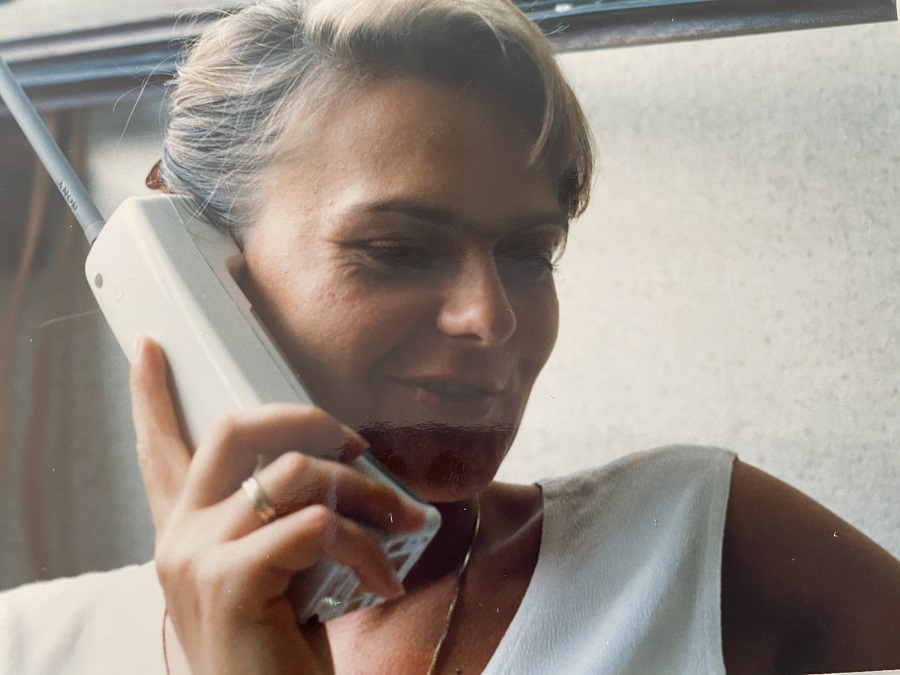
Hrvatska je prekrasna zemlja i kad bi govorili samo o oku vidljivim ljepotama i prednostima života u njoj, lista bi bila jako duga. Međutim, nije lijepo uvijek samo ono „izvana“. Najljepše uspomene nastaju onda kada se ostvaruju ciljevi – životni i poslovni, vlastiti i opći.
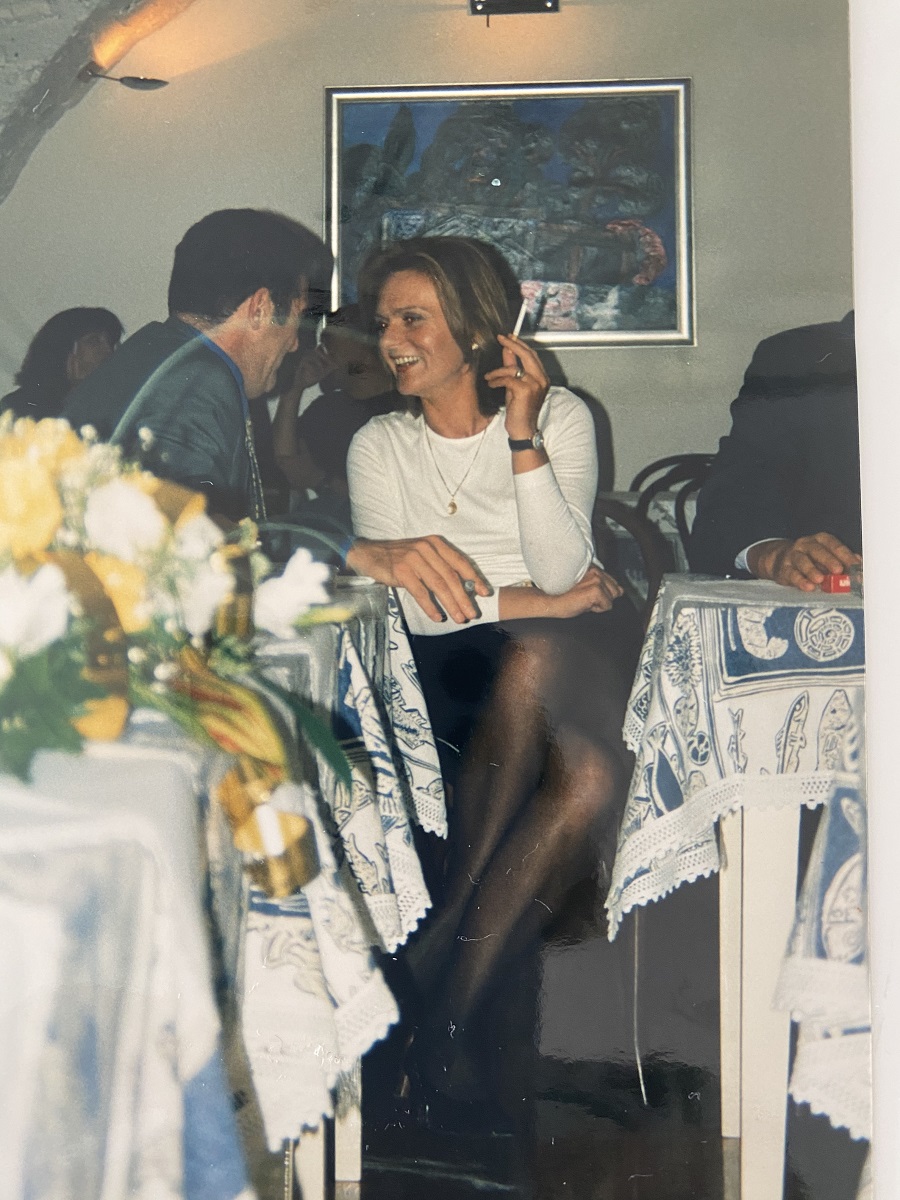
Stoga bih se najprije vratila u vrijeme kasnih 80-tih, kada se nazirao pad komunizma i kada je počela izranjati stoljetna čežnja za vlastitom državom. Tada sam bila u godinam kada sam mogla s dovoljno zrelosti, a opet i dovoljno mladosti za zanos i strast, sve to proživljavati i razumijevati. „Gutala“ sam vijesti, pratila sve što se priča i događa, s nestrpljenjem iščekivala svaku novost. Nažalost, shvatili smo vrlo brzo da će ostvarenje sna biti teško i bolno. Počeo je rat i naši životi su se preko noći promijenili. Međutim, to teško vrijeme donijelo je i mnogo lijepih stvari. Zajedništva, promišljanja i traženja rješenja. U podrumima zagrebačkih restorana okupljale su se skupine ljudi koje su na različite načine željele dati svoj doprinos i sa zadovoljstvom sam se i sama pridružila. Bila sam blizu mnogim ljudima koji su ubrzo postali jako važni i koji su ostavili trag u mom životu. Ponajprije, od tih sam ljudi ljudi mogla puno naučiti jer su me inspirirali da tražim najbolje dijelove sebe.

Iz toga vremena naravno pamtim i strahove. Iako je u Zagrebu bilo relativno mirno, život je bilo teško organizirati u vrijeme između uzbuna. Najteže mi je bilo dok je moja tada desetogodišnja kći još uvijek morala ići na nastavu. Znali smo da će cijena slobode biti velika, ali svejedno, sreća koja se nazirala nakon toga rata izgledala je vrijedna svega.
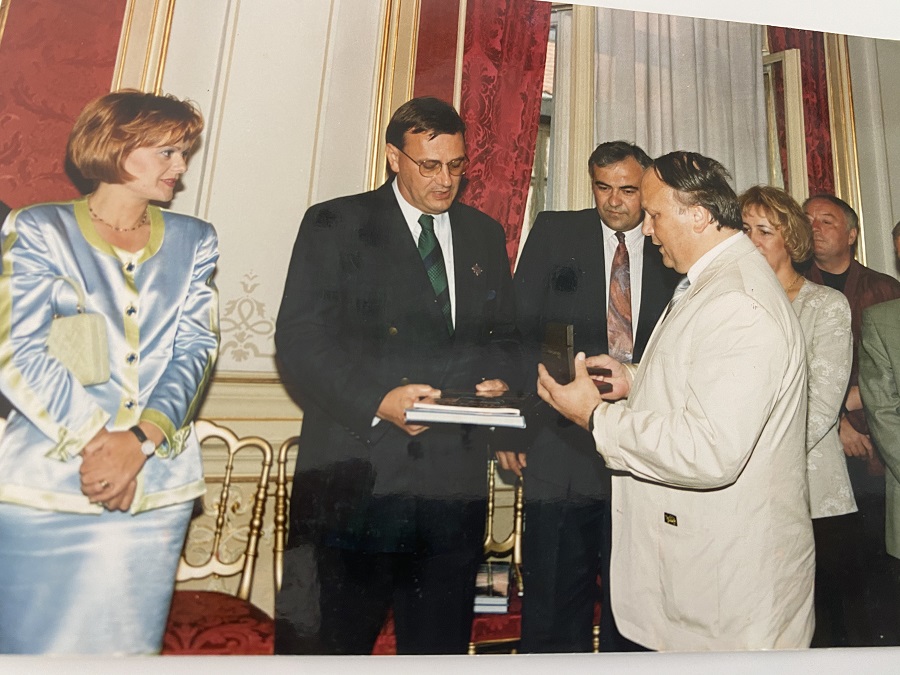
Posljedice rata bile su očekivane. Nastupilo je je dugo razdoblje prilagodbe, sporog dizanja i oporavka. Međutim, dočekali smo i bolja vremena. Razdoblje od 2000. do 2006. posebno pamtim kao vrijeme u kojem smo doživjeli ekonomski procvat. I sama sam, kao relativno mladi poduzetnik, vidjela i našla svoju priliku. U to vrijeme pokrenula sam agenciju za odnose s javnošću. Struka koja zapravo nije postojala počela je živjeti i prilike su se otvarale. U to je vrijeme u Hrvatskoj zaista bilo lijepo raditi, ali i živjeti. Dobili smo i željenu autocestu Zagreb-Split za koju su i naši roditelji izdvajali samodoprinos i koja nam je omogućila da počnemo vikende provoditi u predivnoj Dalmaciji. Iz tog vremena nosim i najljepše uspomene s naše obale, krstarenja i otkrivanja otoka, druženja i uživanja u hrvatskoj gastronomiji i vinima. Naime, među granama koje su apsolutno procvjetale otkada smo dobili državu, svakako su gastronomija i proizvodnja vina.
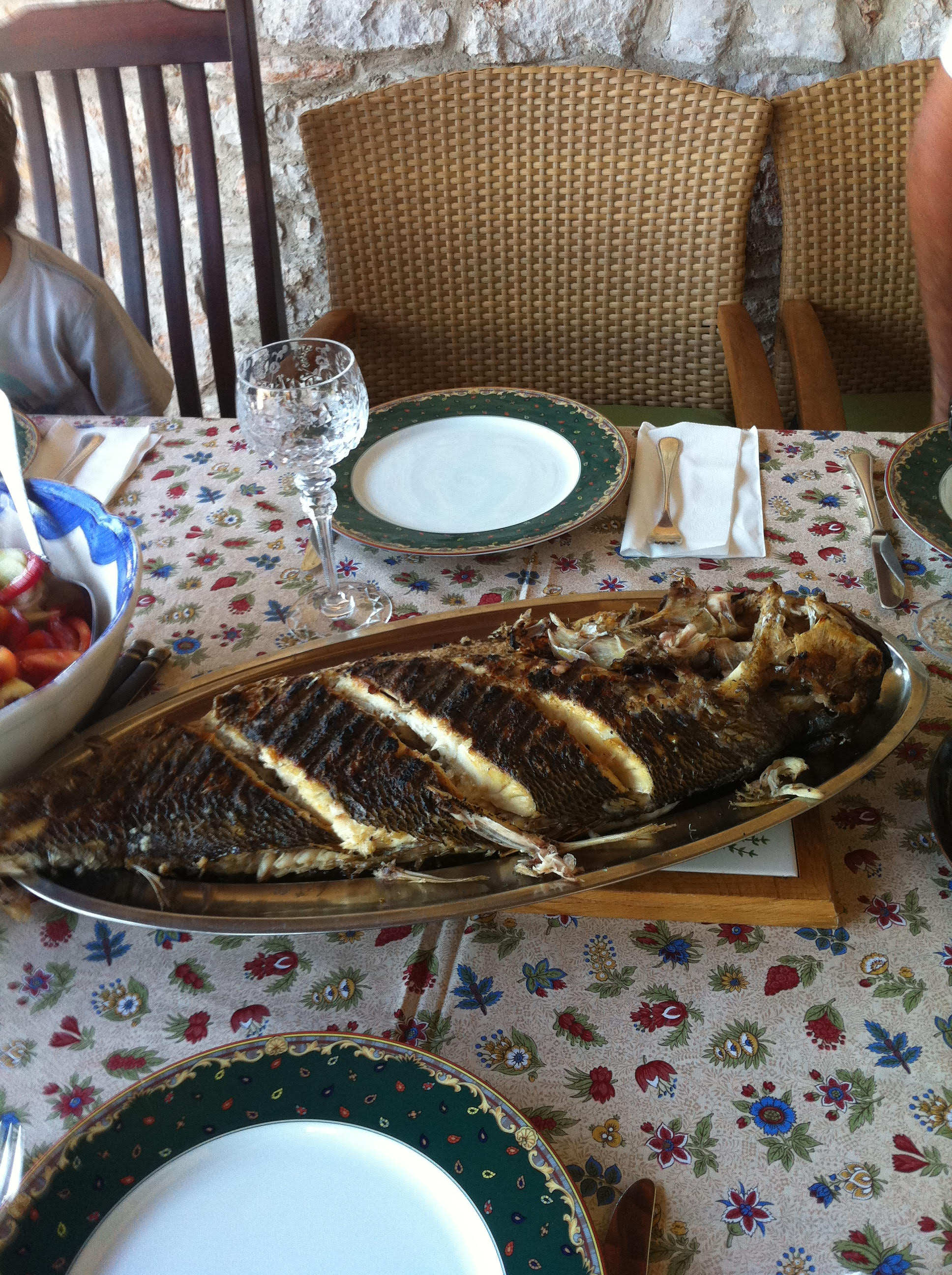
Život se sastoji od dobrih loših i dana, dobrih i loših godina. Iz svake krize trudila sam se nešto naučiti. Međutim, ova kriza koju sada dijelimo sa svijetom, nekako mi se čini najtežom do sada. Malo je onoga što mi se čini da će biti dobro nakon nje. Možda ipak jedna stvar. Hrvatska ima priliku propitati smisao glomaznog državnog aparata i pročistiti mnoge nepotrebne organizacije i agencije. Jedno malo dobro već se vidi na kraju tunela. A to je krah populističkih politika, koje su se u krizi pokazale potpuno nemoćnim.
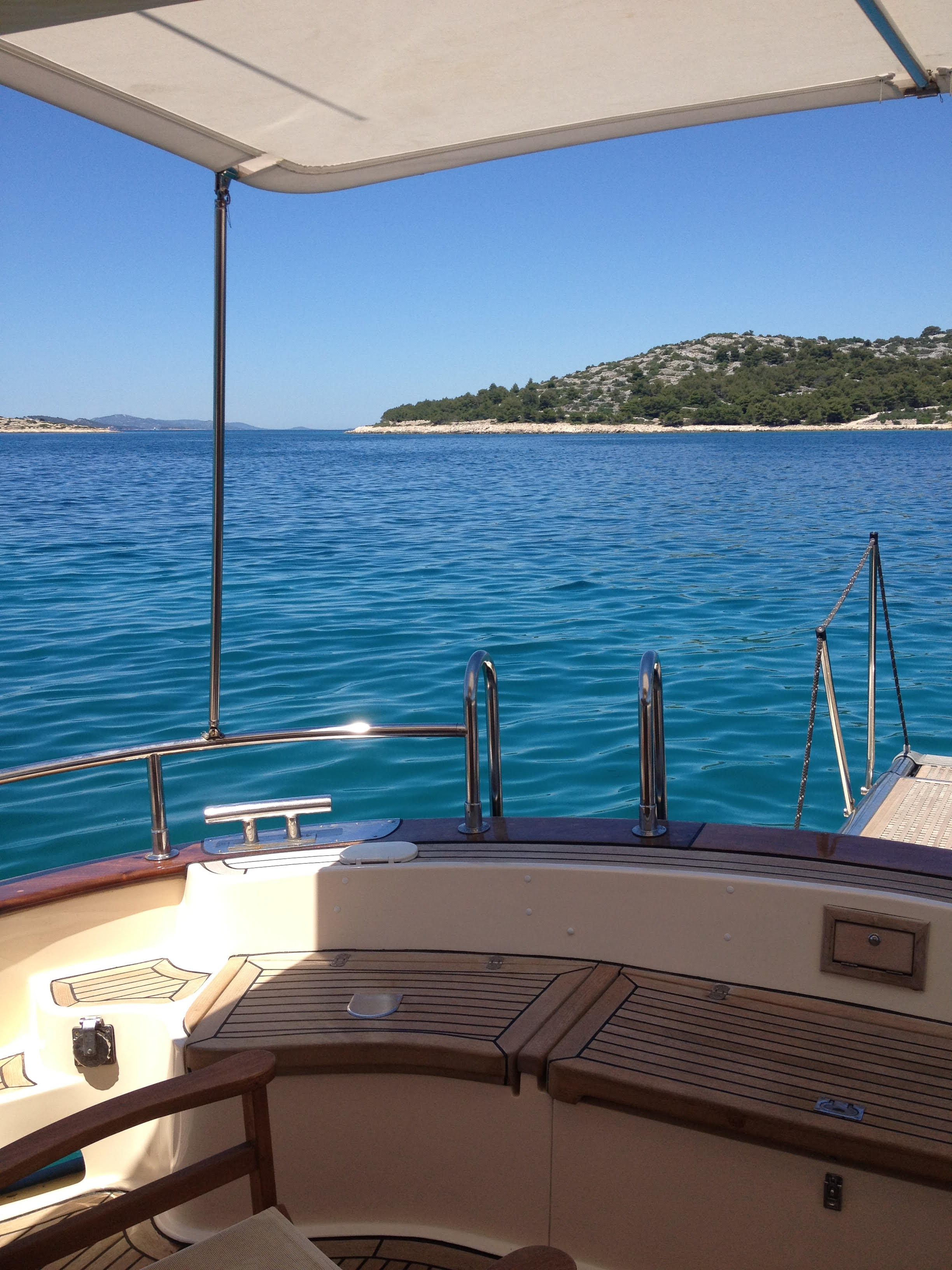
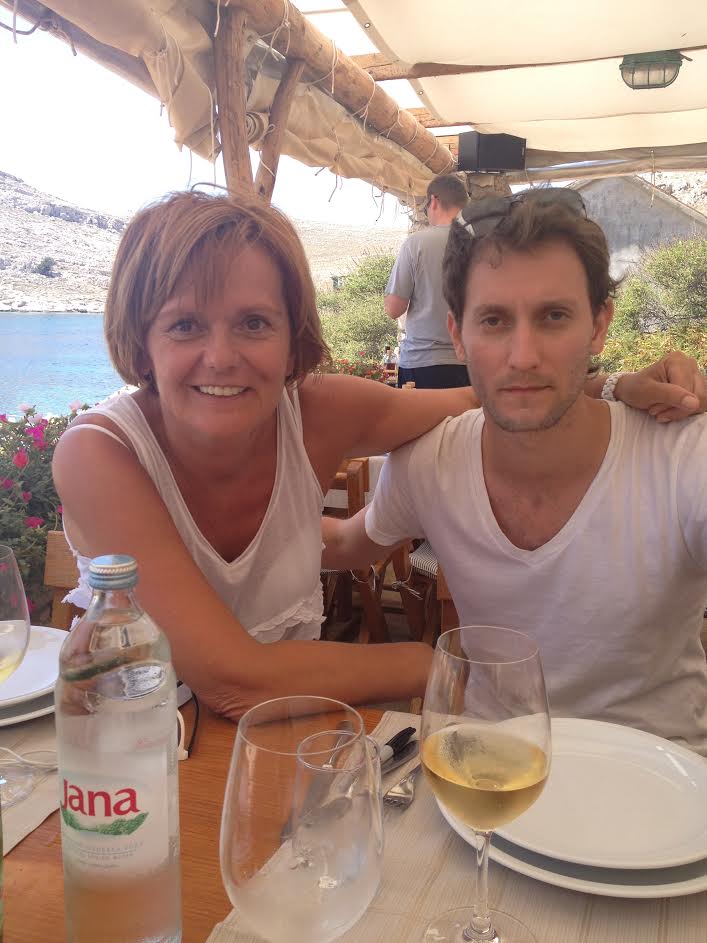
S Ankicom Mamić možete se povezati putem mreže LinkedIn.
Da biste pročitali više članaka iz jedne od naših šest serija koje smo gore spomenuli, kliknite ovdje (na eng. jeziku).
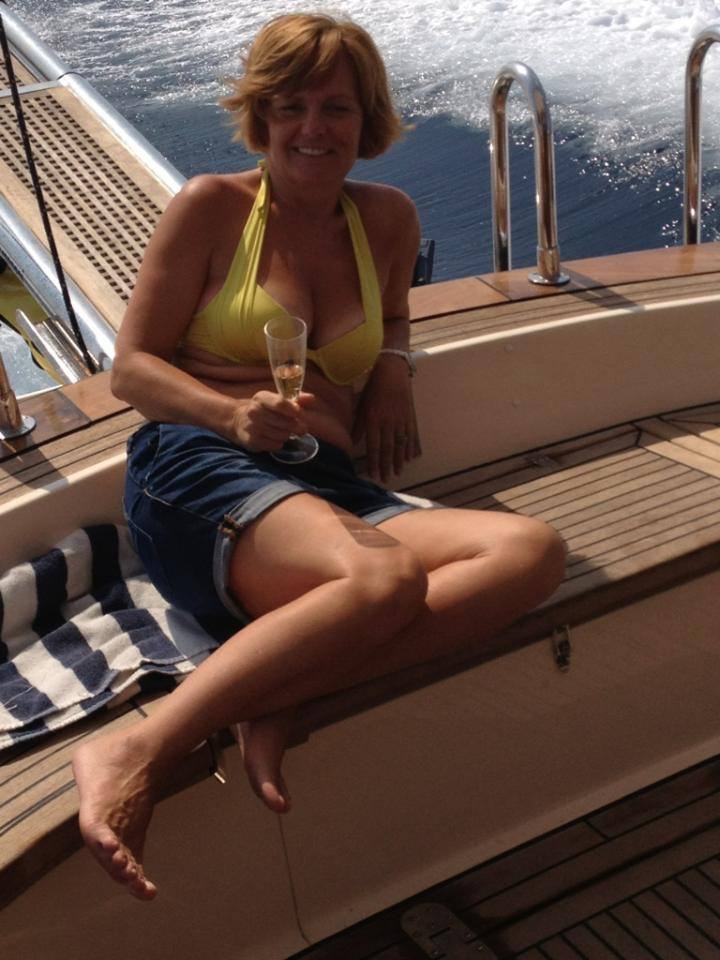
Valuable Archaeological Find in Krka National Park
April 15, 2020 - A powerful 17th and 18th centuries artillery weapon mačkula was guarded for centuries by the Nečven fortress.
A greatly preserved mačkula, still used today to celebrate the victory at the traditional manifestation Sinjska alka was found at one of the two gatekeepers of Krka River, the Nečven medieval fortress, in the near future connected by a hanging hiking bridge with the fortress Trošenj on the opposite side of the river bank.
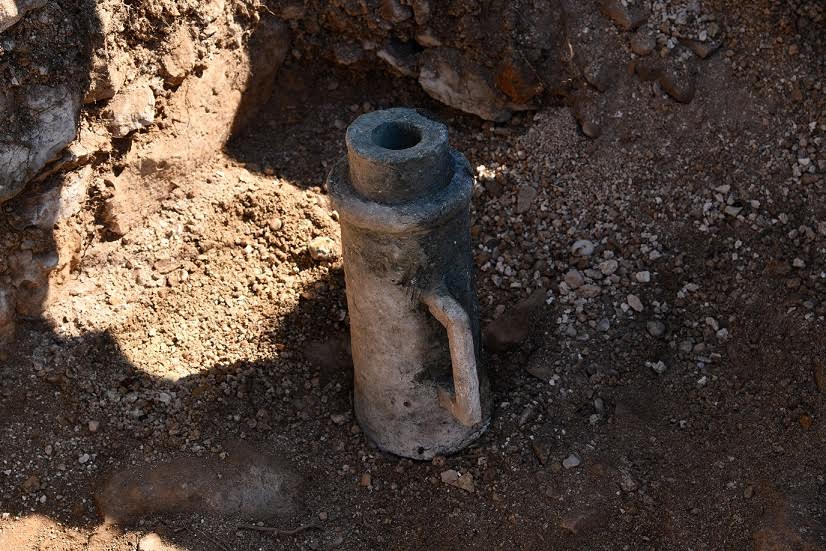
During conservation works on the Nečven medieval fortress in Krka National Park in March, archaeologists were exalted by a valuable finding of a powerful artillery weapon – the mačkula. The extraordinarily conserved bronze specimen, the precursor of today's mortar, was used to invade fortified settlements and enemies in deep cover. Mačkula (mortar, merzer
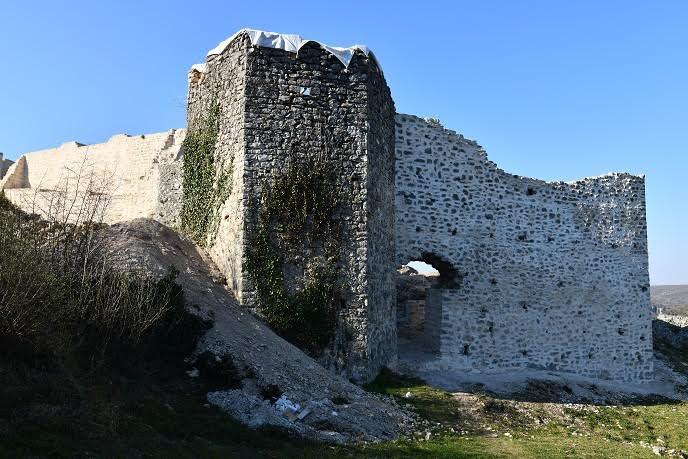
Systematic archaeological research of Nečven fortress started in 2011. and along with archaeological excavations conservation works of the fortress were accomplished. Metal and stone findings were conserved at the Krka NP conservation workshop.
„The specimen mačkula is another valuable finding that will complete the Krka NP archaeological collection and contribute to the valorisation of the cultural and historical heritage of our region“struck Nella Slavica, director of the Public Institute of Krka National Park, and explained that the conservation of the Nečven fortress is a long-lasting project to preserve heritage conducted along with preparatory activities for the future construction of the hanging hiking bridge between the fortresses Nečven and Trošenj over the Krka River canyon. „The bridge construction aims to keep and direct visitors towards upstream locations of Krka River canyon in order to present, among others, the Krka Eco Campus in Puljane, the Burnum archaeological site, the Oziđana pećina cave and the extraordinary Manojlovac waterfall“ pointed Slavica.
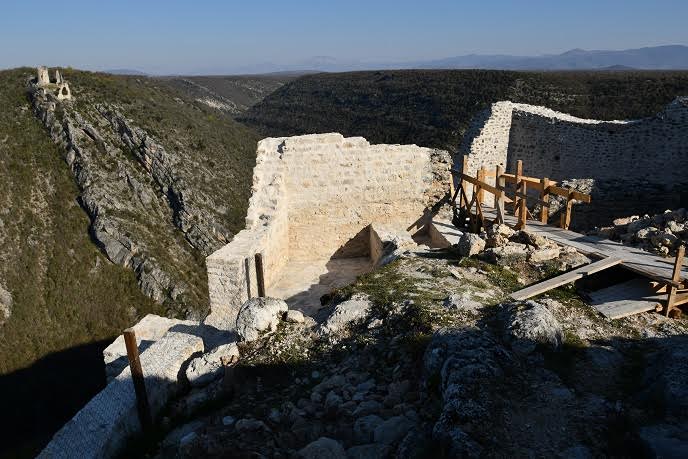
At the beginning of this year, conservation works on the remains of the north and northwestern parts of the Nečven fortress were accomplished along with several internal objects previously archaeologically explored. Afterward started the research of the polygonal tower in the lower part of the fortress. The mačkula was found in the bulwark of the hexagonal tower right from the fortress entrance.
Built at the beginning of the 14th century, the Nečven fortress is one of the most valuable monuments of medieval fortification architecture in Dalmatia. It was owned by the Nelipić family for two centuries. In the 16th century, Nečven is conquered by the Ottomans but a year before the final expulsion of the Ottomans and the liberation of the City of Knin in 1688 Skradin inhabitants took over Nečven fortress and from it guarded the border. Opposite Nečven fortress above Krka canyon Trošenj fortress proudly stands for centuries. Both fortresses represent valuable monuments of Croatian cultural heritage. Fortresses Nečven and Trošenj, built and owned by great Croatian families Nelipići and Šubići as part of the medieval defence system today are valued within Krka National Park.
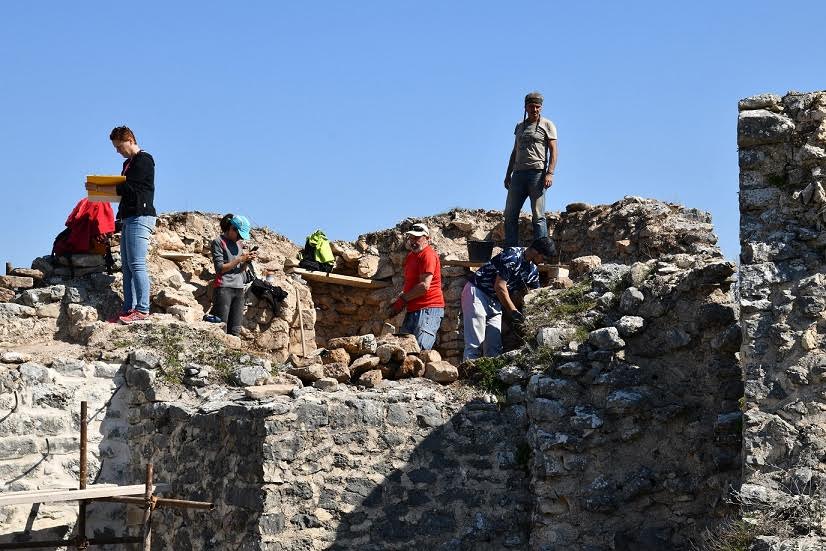
Want to know more about Krka National Park? Here is the Total Croatia Krka National Park in a Page guide.
Glas Poduzetnika Supports Transparency And Public Disclosure of Data
Zagreb - April 14, 2020 - Data on the use of economic measures, as well as detailed expenditures of state and local governments, must be published publicly, says Glas Poduzetnika.
Today's speech by the Vice-President of the Croatian Parliament has reopened the question of the lack of knowledge of the vital topic. Our responsibility as an association of entrepreneurs is to clarify the main parameters, that way avoiding putting into question one quality measure because of the possible cases of its abuse by individual entrepreneurs. Its primary goal is only one - to maintain job posts and to keep economic activity at the currently highest possible level, and for all of us to, as quickly and simply as possible, return to "normal" life, once the days of coronavirus pandemic are at least partially behind us.
In particular, it should be reiterated that the minimum wage financing measure adopted by the Government, including 3,250 kunas of support net per employee in the first package, and 4,000 kunas net per employee in April's package, is an action with which the state does not help individual entrepreneurs, but provides conditions for the stay of employees in the private sector on their job positions. At the same time, the entrepreneurs are obliged to keep employees in work relations for the next six months, and, consequently, the retention of all other obligations once the conditions improve.
All this is a much more favorable and cost-effective solution, comparing the situation with the one where, due to the current reduction in economic activity, many employees would be forced to go to the employment service, which would finally cost the state a lot more.
We in the GLAS PODUZETNIKA Association consider that the Croatia Government's economic measures are the measures for the maintenance of job posts and that the list of companies using these measures should be completely transparent and under supervision of relevant institutions. We also believe that any misuse of these measures by any party or unintended expenditure of funds should be promptly and effectively sanctioned. If anyone, including the Vice-President of the Croatian Parliament, knows about the abuse of this measure in the personal interests of the entrepreneur, and it is clear that only employees have the right to use the measure, we invite them to make such conclusions publicly available. That would be done to protect the entire sector of micro, small and medium-size entrepreneurs who are fighting to save jobs and business activity today, with the long-term idea of a better future for all of us.
We also advocate for a fully transparent society. The annual reports of all entrepreneurs are publicly available and have been available for many years through several financial services. From our side, we expect maximal transparency of all budgets and expenditures of local governments (some of them have already implemented this). The same goes for state institutions and all other associations, chambers, trade unions, and other organizations that now do not have to publish their financial reports publicly.
***
The GLAS PODUZETNIKA Initiative started as a citizens' self-organized group, most of which are small entrepreneurs, after the announcement of the first set of Government's measures, which the organizers deemed insufficient. The Initiative assembled more than 100,000 entrepreneurs, small business owners, self-employed, and the employees in the private sector in less than 15 days, drawing the media spotlight with its uncompromising requests and appearances.
Considering this, GLAS PODUZETNIKA positioned itself as a relevant factor in public discussions aimed to determine Croatia's new economic direction. Its position was also confirmed by the Government of the Republic of Croatia, having included some of the Initiative's suggestions in the second set of economic measures, thus confirming Initiative's undeniable influence. At the request of the Initiative's members, the GLAS PODUZETNIKA Association was created and received more than 4,000 applications for membership within a few days of its founding.
You can follow the Glas Poduzetnika Association on Facebook.
Glas Poduzetnika Survey: What % of Croatian Private Sector Can Work at Home?
April 15, 2020 - More detailed information from the Glas Poduzetnika Association (Voice of Entrepreneurs) - how much of the private sector can actually work from home?
A large number of companies are currently forcibly closed, due to the fight against coronavirus. While we wait for the specific scenarios and forecasts as for how long this situation might last, we thought it would be good to have some information relevant for making decisions, also considering the economic side of the equation. Some professions and companies have made a successful transition to work from home, while some are in the process of doing so. We asked our members, "Can you work from home?" These are their answers:
Even 61% of private-sector employees do not have any possibility of working from home. Thus, they depend on the support of the state or on this situation to pass before returning to the old business models. 19% of participants accounted for the possibility of full-time work at home, and an additional 17% advised that they can partly work from home and do only some of their tasks. We should not forget that 3% of employees say that they can work from home, but that there is simply no work.
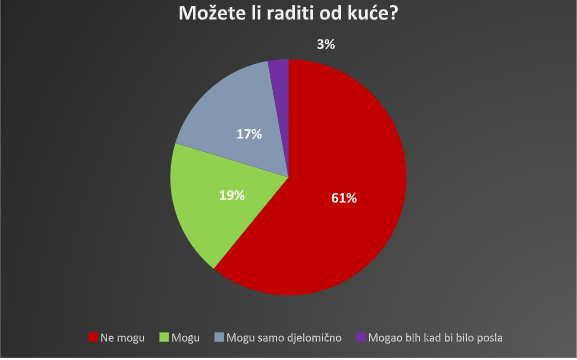
Can you work from home?
I cannot
I can
I can, but partly
I could if there would be work
In addition to the fact that more than 60% of employees do not have the opportunity to earn their salary and sustain themselves, it should be noted that some who work experience problems with charging for their work at this stage. Because of this, we believe that it is necessary to start working on measure loosening scenarios as soon as possible when the health situation allows. More importantly, it is essential to inform them transparently and promptly, so that everyone can prepare as much as possible for an uncertain period, whether it is another 3 or 12 months or more.

